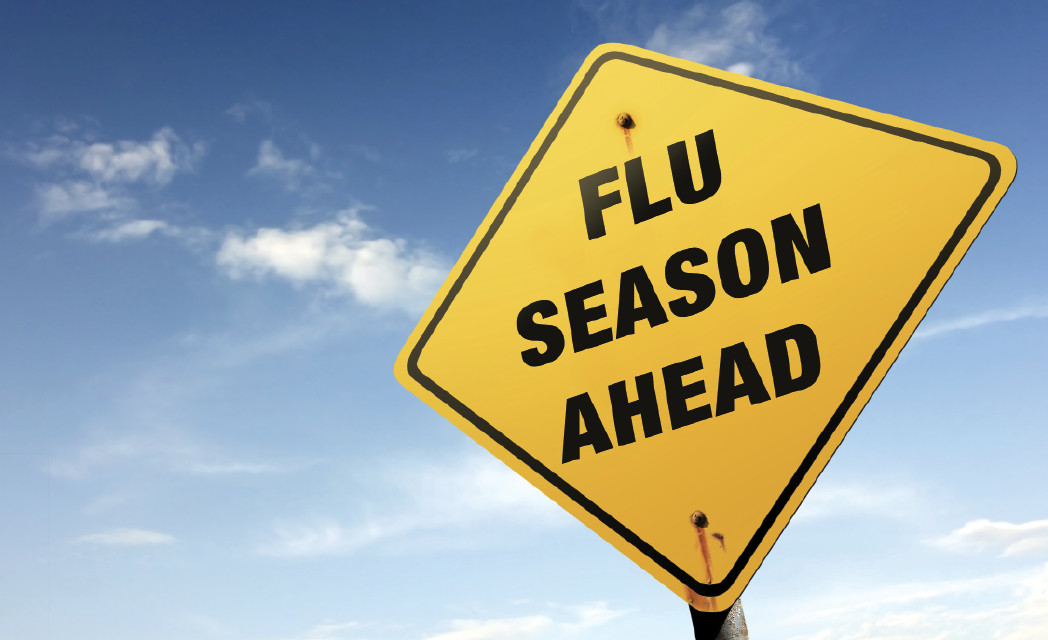There are lots of myths out there about the flu vaccine. Like it could give you flu. And it can be hard to separate fact from fiction.
No one wants to get the flu. It starts with a runny nose and a bit of a temperature. Before you know it, you’re laid up in bed for days or even weeks.
It’s unpleasant at best. At worse, flu could kill you. The flu vaccine is the best way to protect yourself. But lots of people are still wary.
So whether you’ve had your flu jab already or you’re thinking about getting one – here are six things you need to know.
1. No, the flu shot won’t give you the flu.
This is one of the most common myths. We all know someone who’s had the vaccine and claimed that it’s given them the worst case of flu they’ve ever had.
But this simply isn’t possible. There are no active viruses in the vaccine. All it does is help your body create antibodies to protect you against the virus.
Some people do experience side effects after having the vaccine. The most common side effects include a mild fever and aching muscles, which can feel similar to the early symptoms of the flu. This might be where the myth comes from.
But if you do experience side effects, they’ll be much less severe than full-blown flu and should pass in a day or two.
2. Unfortunately, you might still get the flu.
The flu vaccine can’t give you the flu. But it also can’t protect you against flu completely. There are two reasons you might get the flu after you’ve been vaccinated.
Reason one: The vaccine only protects you against certain strands of the flu. And the virus evolves all the time. That means you might catch a strain of flu that you haven’t been vaccinated against.
Reason two: You might also get the flu because you were exposed to the virus just before – or just after – you get the vaccination. It takes roughly two weeks (and sometimes longer) for your body to build up the antibodies needed to protect you against the virus.
So if pick it up just before or just after you receive your vaccine, you’re likely to still develop the flu. But again, your symptoms are likely to be milder if you’ve had the vaccine.
3. The best time to get the flu vaccine is between October and November
Autumn is the best time to get the flu vaccine, because you’ll be protected over the winter months when flu season is at its worst.
But it’s still worth getting vaccinated after this. Flu affects people all year round and the peak season extends to the end of March.

Some years, it’s not uncommon for the flu to be doing the rounds in April or even May.
So while sooner is better, you can get the vaccine in January or even February and still get some protection.
4. You need to get vaccinated yearly
You took the time to get vaccinated last year, so you don’t need to bother again this year – right? Wrong!
Unlike the vaccines for illnesses like mumps, the flu vaccine doesn’t protect you for years. After a few months, your immunity behind to wane. And after a year, the vaccine won’t protect you at all.
The flu virus also changes all the time and new vaccines are created each year to keep up. If you had the vaccine last year, you will have been protected against the most common strain of flu at the time.
But the same strain probably won’t be the most common one this year. So you need to have the vaccine again to make sure you’re protected.
5. The vaccine is the best way to protect yourself against flu
Flu is incredibly easy to spread. It’s passed from person to person by respiratory droplets. So when someone with the flu coughs or sneezes, those droplets can land in the mouths or noses of people who are nearby.
You can also catch if by touching a surface that has the flu virus on it and then touching your own mouth or nose. Just think about how many times you touch a door handle in a day and it’s easy to see how flu can spread quickly.
In fact, people with flu can spread it to others up to 6 feet away. So while washing your hands and wiping down shared surfaces can help to some extent, there’s only so much you can do.
And no – getting the flu and developing immunity that way isn’t better than getting the vaccine.
6. The complications of the flu can be serious
For most people, flu eventually goes away on its own. But some groups of people are at risk of developing complications.
If you’re over 65, have a long-term medical condition like diabetes or heart disease, or have a weakened immune system, you’re more at risk.
The most common complication of flu is a chest infection. This can become serious and develop into pneumonia which can be life-threatening.
So if you really want to protect yourself, get the jab. After all – is flu really worth the risk?








I have been a Type I Diabetic since 1967 so have had yearly flu injections ever since. I have never suffered any side effects. I am very grateful for the protection!